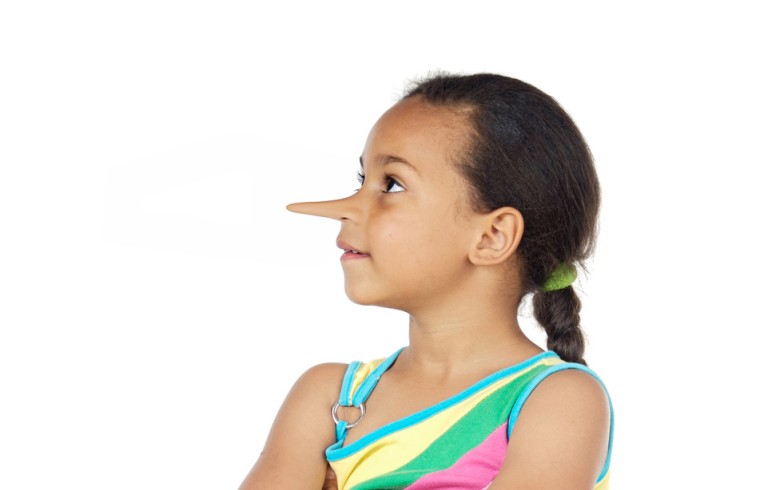When Children Begin to Lie

Recently a young mother confided in me that her almost eight-year-old daughter had begun telling lies. The lies were mostly small in scope, and didn't seem to be focused on hiding anything in particular. In fact, they seemed mostly like little white lies. When this mother confronted her daughter, the youngster explained that she had noticed that some kids seem to get away with lies. She gave a few examples of other children who had either told a lie at school, or at home, and had seemingly not been caught. Moreover, in some cases these children had gotten away with something because their lies had been taken for the truth.
This young daughter was puzzled by all of this, seeing that her mother had taken great care to instruct her that lying was unacceptable and never really worked or gained anything in the long run. Clearly, this child was able to see from her own observations that Mom's admonitions didn't stand up to experience. So, she had decided to try it out herself and see if she could get away with a lie.
My first reaction was to be impressed by the logic employed by this young girl and her creativity at testing out the hypothesis she had formulated based on her observations. She was in fact perfectly demonstrating a significant change in cognitive capacity (ability to think) that occurs usually around eight years of age. There is a mental leap that allows children to begin to see what I call the shadings in reality. Things change from being very black and white to incorporating shades of gray.
For the child, this means that what they have learned under the tutelage of the parents is now open for testing in the immediate environment. Not only can children remember what the rules are, they know when to apply them and can observe how others apply them. In the case of this youngster, the experiment was simply that. There were no other emotional problems that were instigating her newfound attempts at telling lies. She was doing research based on her new ability to look at things with a more penetrating eye.
What I am trying to get across here is that lying at this age is quite normal. It signifies creativity along with an increase in intellectual functioning. That doesn't mean that it is an acceptable behavior, but it is helpful to understand why it occurs. It is particularly helpful to parents to realize that their children are in fact developing along normal lines. That said, it is equally important that the opportunity for instruction that is provided by lying be used to further the child's capacity to think things through.
Let's go back to our youngster who has noticed that sometimes children seem to get away with lying. I instructed her mother to deal with her child's dilemma about lying in the following way. First, initiate a conversation about the issue of trust as it is related to lying. In other words, point out that if she lies to her mother, then her mother will begin to question whether or not she can trust what her daughter tells her. If she can't trust her, then she will not be able to allow some of the privileges that are currently based on that trust. Secondly, ask the child to think of a situation in which someone has lied to her. How did it feel? What happened? How did it affect her relationship with that person?
This is a good lesson in empathy. Point out that even though someone may think they are getting away with lying, they really are not. By lying they are saying that they can't be trusted. They are also doing something that can hurt someone else. Moreover, they are potentially damaging their relationships with people that mean something to them.
I told this mother to be sure that throughout the conversation to use very concrete examples the child could understand and relate to, and to construct the interchange in more of a question and answer format rather than a lecture. Finally, I encouraged her to use a very kind and understanding tone. This is not a situation that calls for punishment, and in fact punishment would defeat the purpose of the lesson.
When finished with this process, it is important to be sure that your youngster understands that lying is not an acceptable activity. You've laid the groundwork for assisting your child in internalizing this rule as well as understanding why this is so, and you now have a conversation that you can refer to in the future when and if the situation reoccurs. Be sure to applaud your child for being able to use logic and to think about things in such a careful way. Invite her to come and talk to you in the future when she comes across things that do not immediately make sense.
